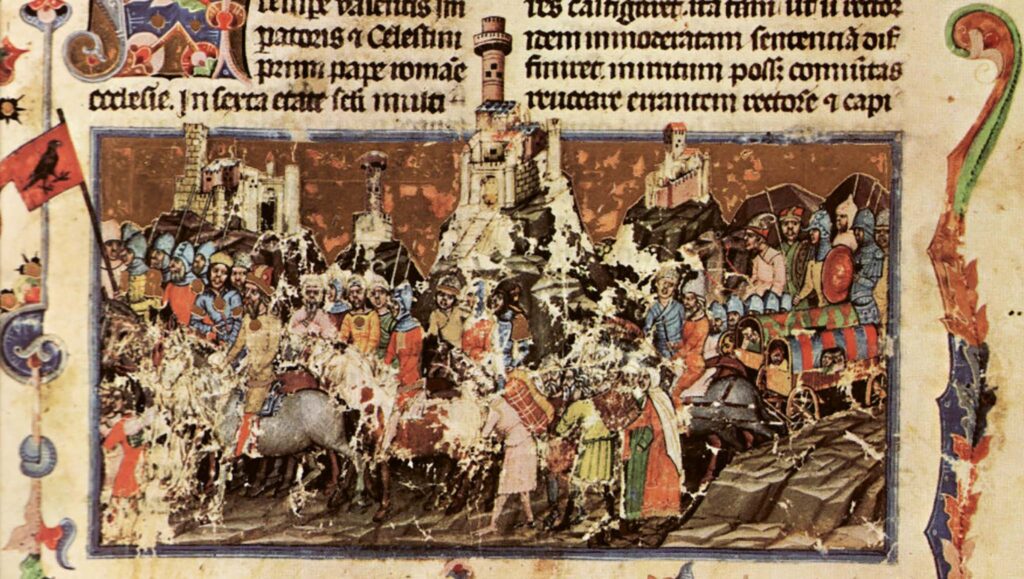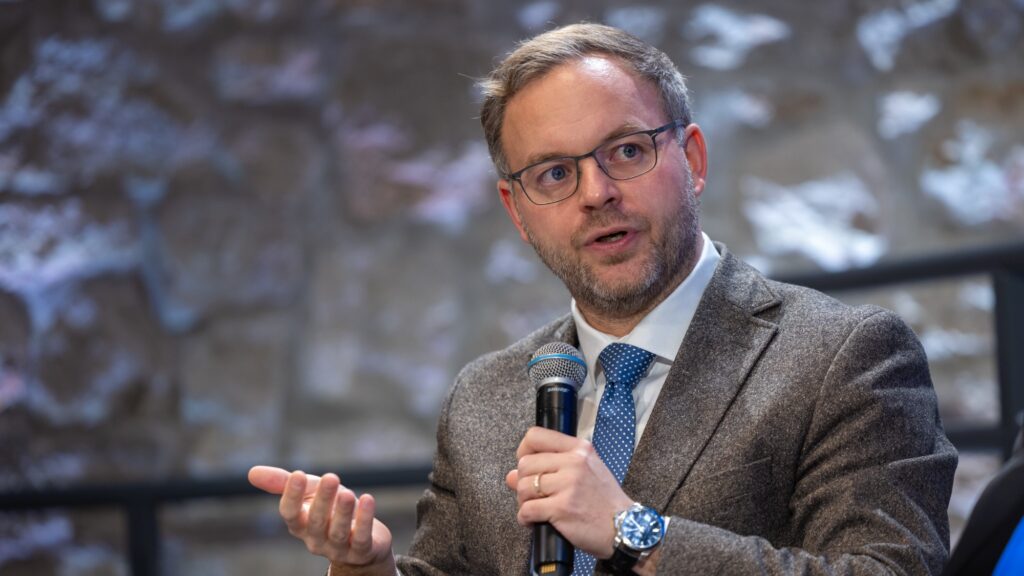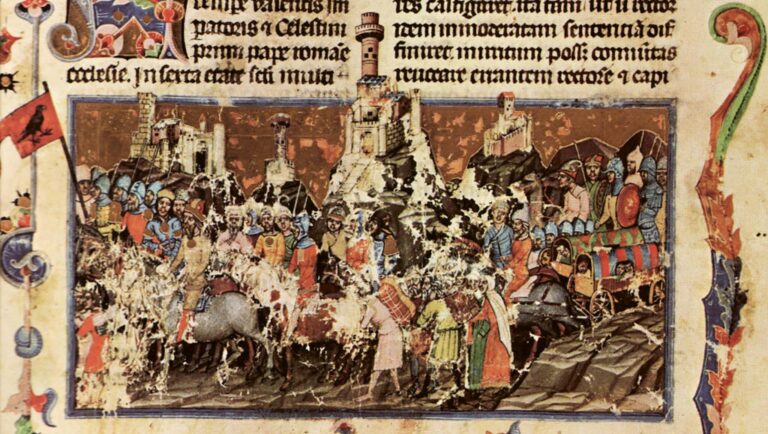The following is a translation of a review of Hungarian politician and economist György Matolcsy’s book titled On the Edge of Times — The Rerun of the 1940s and the 1970s written by Márton Békés, originally published in the 2023/1 issue of Kommentár.
‘Every decade has a meaning, almost every year has its own face,’ Oswald Spengler stated very clearly, indicating that the parallel material and spiritual transformation of the world is taking place gradually. In this context, it is customary to talk about the Zeitgeist, i.e. the spirit of the age, which is more than current fashion, although fashion is also a part of it. We all know what we mean when we talk about the years of lead of the 70s (anni di piombo, or bleierne Zeit) or the long ‘end of history’ state of the 90s, which, overall, lasted from 1989 to 2001. The decades left behind can be grasped in this way with their Zeitgeist, or at least with their basic atmosphere; the deceptive hope of the 2000s and the sobering of the 2010s also prove this.
The Zeitgeist did not spare us in the 2020s either, and even the influential events of its first years entitle us to spy on its perspective without extrapolating the lessons of its major events beyond the limits of uncertainty. The decade began with the coronavirus pandemic, which in any case defined its first one and a half to two years with its new waves, lockdowns, and reopenings (2020–21). Then, among its conflicts, the US giving up its twenty-year export of democracy in Afghanistan in August 2021 certainly comes to mind as well, however, the start of the ‘special military operation’ that began on 24 February 2022 proves to be the most memorable of all. Although the Russo–Ukrainian war has understandably been dominating the foreign policy discourse currently, it is actually part of the ongoing world system change, namely as its accelerator, as a result of which not only the reorganisation of world power relations, which had been taking place in the darkness until now, came to light, but also its escalation intensified.
The 2020s will be the decade of world system change,
as stated in the latest issue of Kommentár (2022/4).
In the first third of the 2020s, the world reached the point where the conflicts that started decades earlier and intensified in the 2010s reached the state of, as French political theorist Guillaume Faye put it, ‘disaster convergence’, which mainstream social science today calls ‘polycrisis’. Climate change and its agricultural consequences, the demographic explosion and demographic winter, and the series of armed conflicts and migration caused by these all converge and connect here, exacerbating the mutually reinforcing effects. After such ominous beginnings, the Russo–Ukrainian war, which has been emerging since at least 2014, broke out last year, which is in fact several conflicts at once: a traditional post-Soviet civil war and a hybrid American proxy war, but together with its associated consequences (exclusion from global forums, sanctions on energy carriers, Russophobia, cultural racism) and regional co-conflicts (Azeri–Armenian war, destabilisation of Belarus and Westernisation of Moldova, Kazakh perestroika, Kyrgyz–Tajik border dispute) it is also certainly a world-shaking development.[1]
Hungarian politician and economist György Matolcsy’s latest book titled On the Edge of Times — The Rerun of the 1940s and the 1970s clarifies the basic lines of our time and places them in a world-historical and economic-political context. The author has a PhD in economics, has been the President of the Hungarian National Bank and a member of the Fiscal Council of Hungary since 2013, and is the former Minister for National Economy (2010–13) and Minister for Economic Affairs (2000–2002). In between the two, he was the Director of the Growth Institute (2002–2010) as well. For conventional economics, Matolcsy appears to be an unorthodox futurist, which in itself is sufficient proof of his originality. In his latest book—published in both English and Hungarian—, similarly to his previous works (The American Empire VS. The European Dream, 2020; Equilibrium and Growth [2nd revision. ed.], 2020; Infinite Life. Global Discussion Paper, 2021),
he continues his way of non-linear thinking, both in an economic-philosophical and historical-political sense.
Between the autumn of 2019 and the spring of 2022, György Matolcsy published a series of 253 debate articles under the title 100 Words (partially published in the opinion section of The Financial Times), in which he contested the well-known authors of the Western liberal economic mainstream and their findings, but also touched on sustainability, the declining transatlantic world order (namely American imperialism), and the Eurasian era change. The book of an unusual genre contains epigram-like paragraphs in four parts and a total of eighteen chapters. Among these topics, we are now specifically focusing on periodisation, since the volume provides an exciting vision of how the ‘patterns of time’ repeat themselves in cycles of centuries and periods of decades, as historical epochs and time fractals.
The macro framework of the collected and organised writings is provided by the fact that Matolcsy sees the patterns of the 40s and 70s of the previous century as not to be repeated, but to return in the 2020s, that is, he is thinking in fifty- and eighty-year cycles. As he puts it, ‘the 80-year institutional cycle and the 50-year-long socio-economic cycle combine their forces in our decade’, and moreover, ‘at the global level, we are following the pattern of the first European Thirty Years’ War (1618–1648)’. In the first half of the period historically lasting from 1939 to 1949, it was World War II that first left its mark, and then in its second half of it, it was the processing and making up of its immeasurable demographic, economic, and moral damages, from which the social market economy, or the model of Rhineland capitalism and the development of the welfare state, was born. For example, the period between 1968 and 1980 in the United States was characterised by foreign policy failures (defeat in Vietnam, Soviet entry into Afghanistan, Islamic revolution in Iran), increasing crime, declining economic performance, stagflation, the oil crisis, and social tension, which was then answered by the first generation of neoconservatives and the subsequent Reagan revolution. War, inflation, population movement, energy supply problem, i.e. crisis, or even a global multi-headed crisis, is now here, the leading idea is however missing—this is precisely what the author tries to help from the economic policy side when he bases his solution on a complex view of the world economy, in which he proposes the creation of a ‘new sustainable economics’ establishing periodicity and patterns (cycles, fractals, and quanta).
In his understanding, the current debate on the theoretical and practical side of the economy is caused by the difference between ‘the former liberal approach and the currently rising approach based on sustainability’, the contrast of which is compounded by, or more precisely triggered and culminated by, ‘the clash of Western and Eastern, i.e. Asian, positions’. The author clearly takes a stand against Western neoliberalism and is in favour of a Eurasian shift. The pandemic and its long-term consequences, the escalation of inflation, and the security policy and energy supply consequences of geopolitical clashes, which Matolcsy calls the ‘three main trends of 2022’,
indicate the vulnerability, and even the decline, of the former neoliberal monetarism and the Western/transatlantic world order linked to it.
Taking their place, a concept that, on the one hand, realises close cooperation between central banks and governments, the reduction of public debt, and the increase of productivity—which is the key to a ‘strong, wealth-producing economy for the great majority’—, and on the other hand, acknowledges that ‘the world is moving in the direction of a multipolar structure, driven by more than two forces’, whereby ‘globalisation is replaced by regionalism, leading to the birth of old and new regional powers’, could bring success only. The decade of 2020 will be about this struggle, in which, however, Europe will become less and less of a factor, thanks to the federal-imperial difficulties, the euro crisis, and the ongoing ‘American warfare’ against the EU.
But let’s get back to Spengler! In his last book, in The Hour of Decision, published in 1933, he wrote that ‘we have entered the era of world wars’, when world power ‘moved from Europe to the peripheral areas, Asia and America’; that presumably ‘in the middle of the century, England will shrink to its own island’; and that in France it is, in fact, the immigrants making up a tenth of the population who ‘keep the number of “French” at the same level’. Exactly ninety years later, it is not the predictions of some kind of political Nostradamus that are turning into reality when reading these lines, but the long-term regularities of geography and history, with a certain degree of predictability. Following the ornamentation of space and time, we will not resign ourselves to the future with blind fatalism but acquire the activity necessary to win this decisive decade.
[1] Mária Schmidt, Vision of the Russo–Ukrainian War, 2022.
Related articles:








